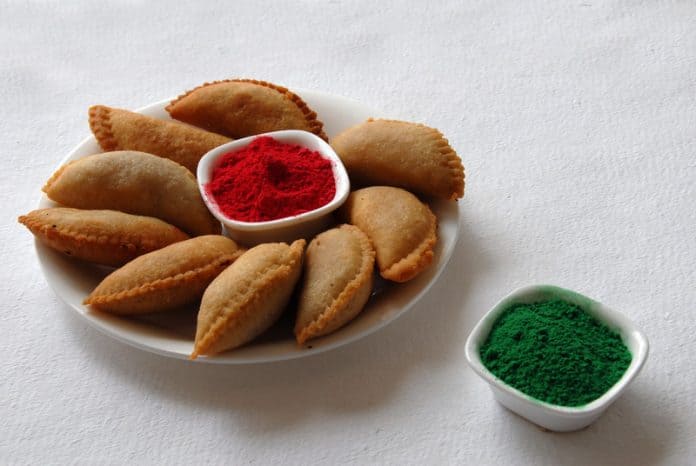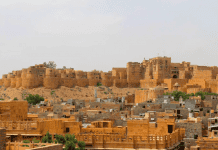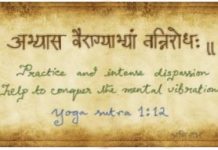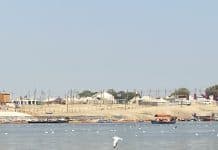Holi – that wonderful festival that conjures up images of rang, bhaang, gulal, abeer, and water pichkaris. It also reminds one of the childhood days, the complete abandonment with which kids play Holi and their oblivion to any notions of health or environment, as may be the case.
In India, festivals usually mean the ladies of the house start preparing food way in advance. Sometimes the foods are prepared in the days leading up to the festival while, at other times, the ingredients are bought and kept ready for preparation on the day of the festival.
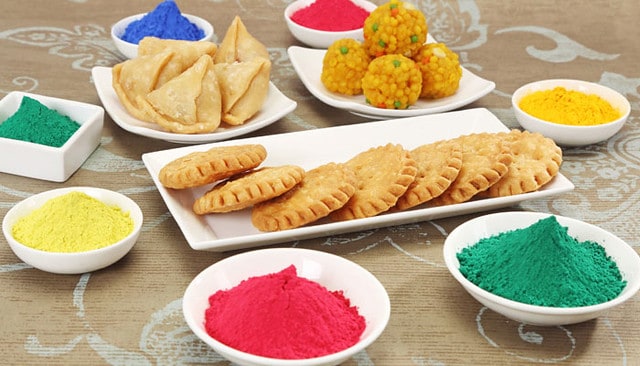
The festival of colours has its own traditions and customs, with the ladies in most traditional settings preparing special recipes for the day, which range from lip-smacking gujjiyas and thandai in Rajasthan to aloo ke gutke in Uttarakhand and delicious puran polis in Maharashtra. The other traditional foods that feature every Holi party’s food table and in most houses and restaurants offering the Holi fare are – bhaang laddoos, malpuas, kesar malai pedas, ras malai, and matar kheer.
Holi is a festival that is every gourmand’s delight and we can easily see why! A riot of colours run wild not only in your local vicinity but also on the well-set table decorated with this variety of colourful dishes.
Tired from drenching their friends and family in coloured water and gulal, most people retire to the comfort of their homes, trying hard to get the colours off their skin and hair, and gorging on the delightful food, made especially on the occasion of Holi.
Like every festival in India, Holi comes with its own traditions of gastronomically delightful food. Every culture in India has its own distinctive touch to how they celebrate this festival of colours along with a remarkable cuisine set aside for this special occasion. Let’s explore some of these cultures and their exceptionally tasty foods for this colourful occasion.
(1) Gujarat
Holi is synonymous with Lord Krishna, his ras leelas with the Gopikas, and other such playful stories about him. One such prominent story is the one that gives him his endearing name ‘maakhan chor‘ (butter thief), with his fondness for butter very popular. Commemorating this fondness, Indians have a popular tradition of Dahi Handi, usually on Krishna Janmashtami, but also on Holi in states like Gujarat, where some communities come together in large numbers for the Dahi Handi.
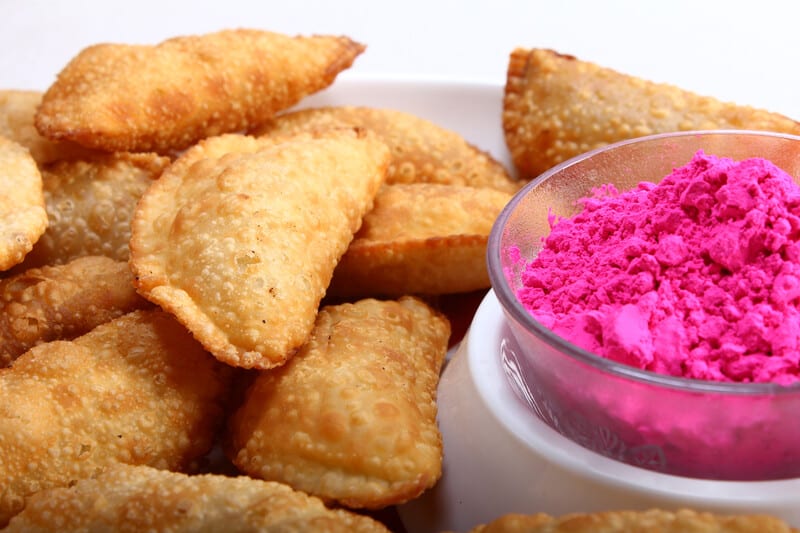
The landmark food tradition in Gujarat for Holi is to prepare the widely-loved Gujjiya – which is a crisp, flaky pastry with khoya or mawa or coconut and dry fruits filling. It adorns every household’s table in the country, especially in this western state of India – also known as the Jewel of the West.
With health consciousness on the rise, many households now bake the gujjiyas rather than deep fry them. Click here to try a gujjiya recipe.
(2) Uttar Pradesh and Uttarakhand
Holi in Uttar Pradesh and Uttarakhand is also a harvest festival when the new crop of barley is being harvested. There is a tradition of placing a pot with the new crop of barley seeds at the bottom of the Holika pyre. The seeds get roasted in the pyre and are then eaten together after the pyre is put out.
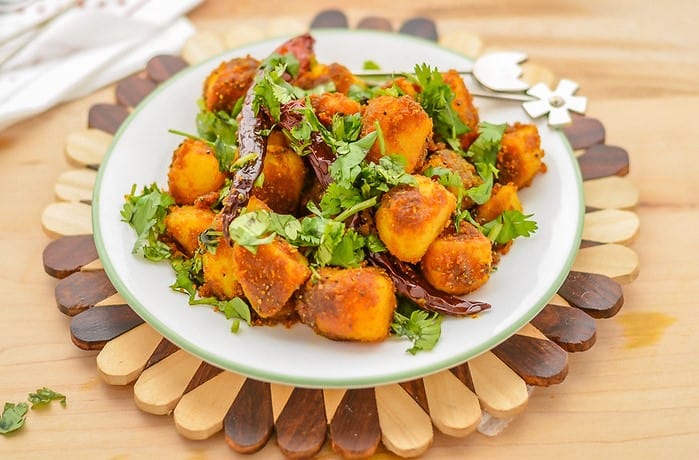
Other must-haves in the two states during Holi are thandai, mathri and aloo ke gutke. Here is a recipe that will help you make some amazing aloo ke gutke to relish before you get started the colour play on Holi. Click on this link to the recipe of aloo ke gutke.
(3) Rajasthan
Holi is never complete without glassfuls of thandai. The beauty of the thandai is that it has been around in various forms since 1000 B.C. and still continues to be the go-to Summer and Holi drink that is equally healthy and delicious. You can customise it to your own taste and innovate as you go!
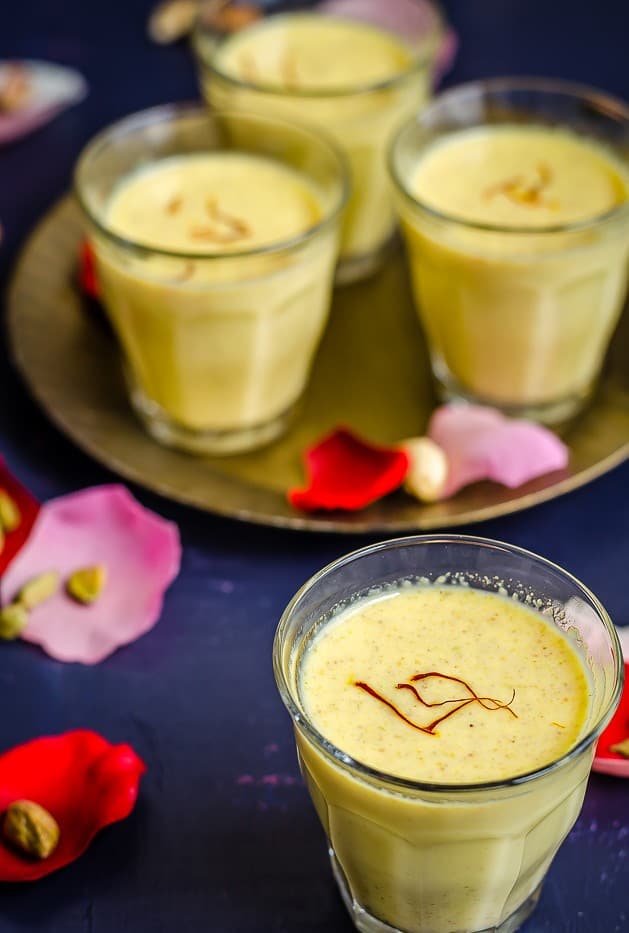
In fact, now various versions of this unassumingly simple yet very tasty drink can be bought over the counter as many brands like Haldiram’s sell its concentrated form which one can dilute and make at home, mixing it with milk or water, as per their preference.
For those who love doing it themselves at home, here is a refreshing Rajasthani thandai recipe for you that will keep you cool and hydrated this Holi. Click here to access the recipe.
(4) Delhi
Delhi is not just a potpourri of various cultures and communities across the country, it is also constantly a cusp in time, uniting the past and the present harmoniously. The most hearty and beautiful celebration of this cusp lies in the food it offers.
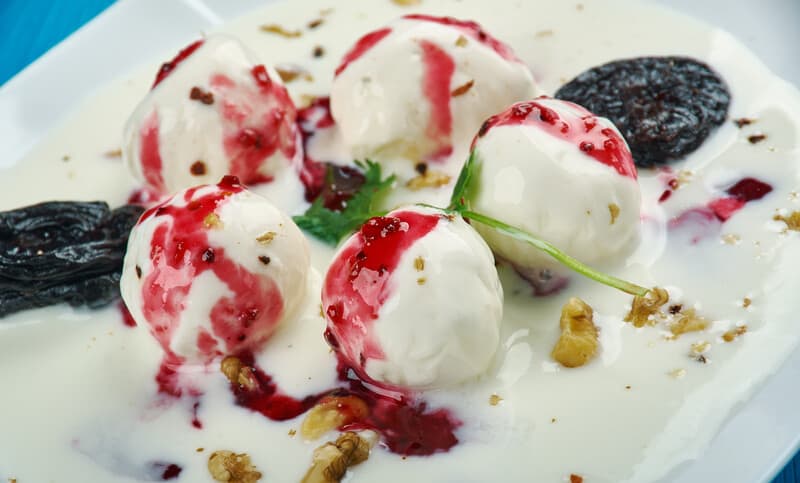
During Holi, the street food seems to become a lot more sought after, dahi bhalla being the hot favourite. Holi or otherwise, Delhiwalas just need an excuse to eat more of their favourite dahi bhallas! Many parts of Delhi and many famous vendors make the most of this – you could devour amazing bhallas (as they are lovingly called) in Chandni Chowk and Bengali market alike.
Here is a simple recipe to make the dahi bhallas at home and bring in the Delhi vibe; click here to access it.
(5) Manipur
Yaoshang or Yawol Shang is Manipur’s festival that is celebrated around the time of Holi and has traditions that made it popular as the ‘Holi of Manipur’. Apart from Thabal Chongba or the moonlit dance – which is celebrated with folk music, folk dance and indigenous instruments – another prominent tradition followed during Yawol Shang is the sharing of food. Families prepare a range of local traditional dishes and share it with other families as a way of coming closer as a community. There is surely something very unifying and humbling about receiving and appreciating food given to you by another family.
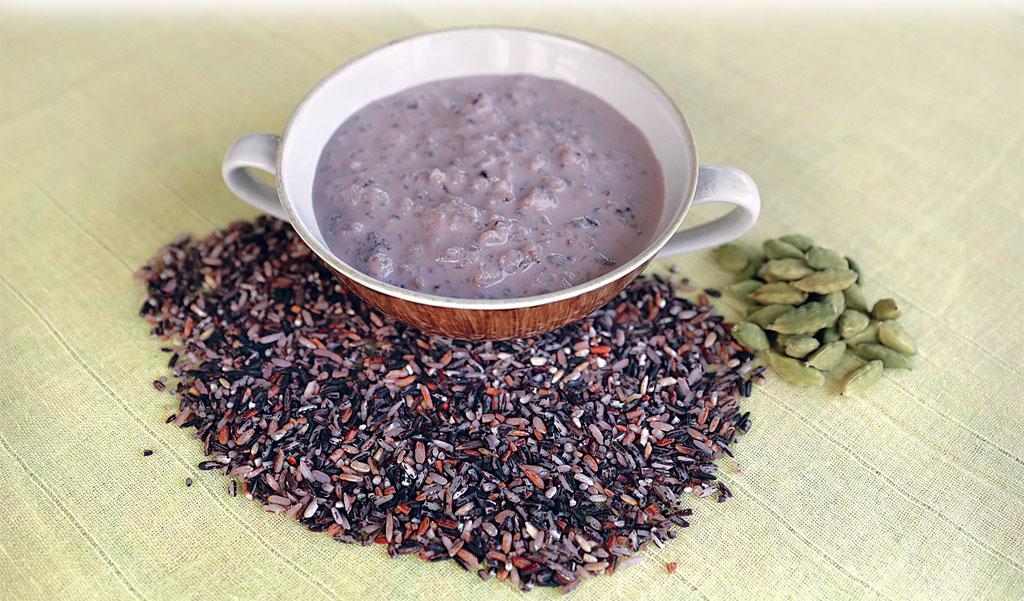
Here is a recipe of chak-hao chaa that can make this Holi exciting for you; chak-hao or black rice pudding or kheer is a very popular Holi dish in Manipur. Be sure to share it with your friends in the “Yaoshang” spirit! Click here to make this delicious recipe at home.
This article is jointly researched and written by Arunima and Ranjani in the blogging team.


